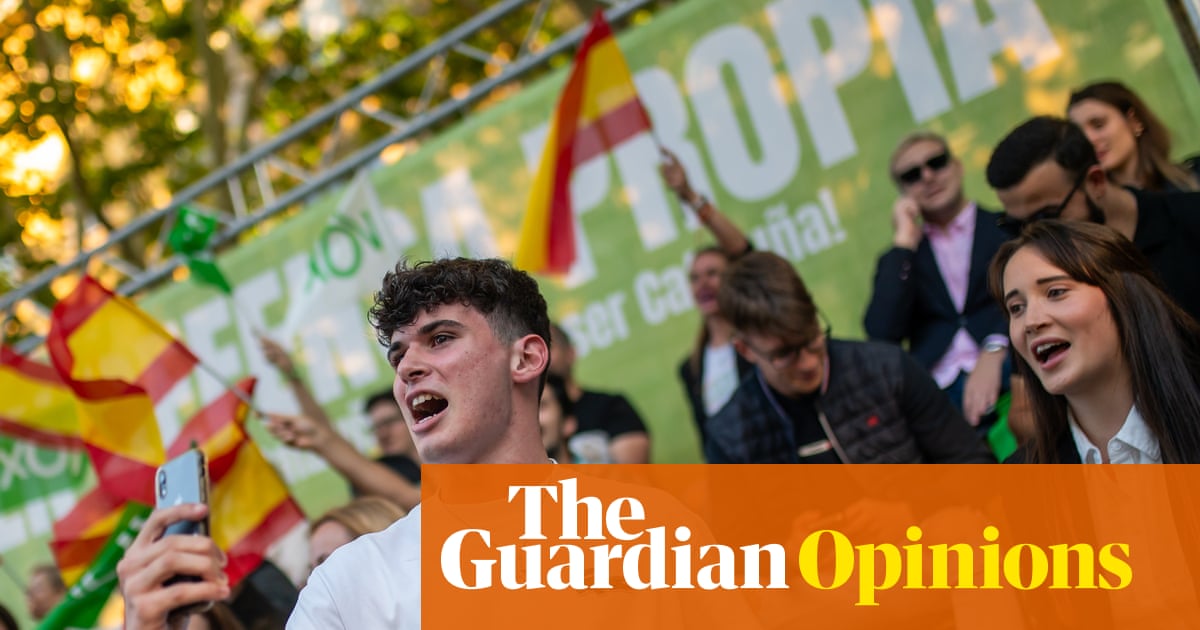https://nitter.poast.org/ChristianHeiens/status/1975400922822901819
Quote from link,
“There were two schools of thought on the Spanish Right in the lead-up to the civil war: Accidentalism and Catastrophism.Accidentalists believed that the serious issues facing the Spanish Republic were not baked into the institution itself, but rather an accident that could be attributed to the early Marxist bent of the first government.The Republic had gotten off on the wrong foot, but Conservatives could and would steer the ship in the right direction once they peacefully won political power through the electoral process and formed a government capable of addressing the Right's concerns regarding government attacks on the Church and private property. They were strictly committed to following the rule of law and operating within the constitutional framework.The second group believed the Republic was a catastrophe from the start, and that there could be no saving the Republic from itself. They asserted that the Left would never recognize any non-Leftist government, no matter how much they claimed to uphold the rule of law, because the problem was not with the Republic's legalistic procedures but rather with the fact that the entire system was merely a facade to facilitate a Socialist and eventually Communist state that would permanently exclude Conservatives from power.These two camps were largely united in their politics but divided in how to engage in politics. One pursued reform, while the other waited for an opportunity to overthrow the system itself once enough of the Right realized that there would be no voting their way out of this mess.After the Right won the 1933 elections and were met with: 1) Legalistic stonewalling when they attempted to form a government, and 2) An attempted Left-wing revolution in Asturias in 1934, the Catastrophists were proven to be correct. As 1936 dawned, most Conservatives in Spain had been convinced by the events of the previous five years that the Republic was a catastrophe initiated by a delusional and vindictive set of Left-wing fanatics who sought absolute power. And they were right. The problem was that the Left associated the Spanish Republic with Left-wing policies, not with concepts like "democracy" or the "rule of law." So when Socialists talked about "democracy," they meant it was their political experiment to wield power, not someone else's. The Right didn't realize this until it was too late. When they sought to play by the rules and win elections through the legitimate democratic process, they found out that the Spanish Left was utterly unwilling to recognize the Right's moral legitimacy to even exist, let alone wield political power to "turn back" any of the "progress" they had already inflicted on the country. From the moment the Republic itself was declared in April 1931, power was supposed to be the Left's forever. Any deviation, even if through the legitimate electoral process, was seen as an act of treason. It had simply taken the Conservatives five years to come to this realization. The Left was not interested in compromise or coexistence. One side was going to win.The Right became convinced, through the Left's own actions, that they would never follow the rule of law and that if they continued to operate within the framework of a political system engineered to guarantee their defeat, their very way of life would be extinguished. Faced with the threat of an adversary that respected no limitations on power and which had explicitly declared its intentions to destroy everything they believed in, the Right abandoned parliamentary democracy and collectively began planning to overthrow the Republic rather than to run it through a political process that it knew the other side had no intentions of ever respecting.”


